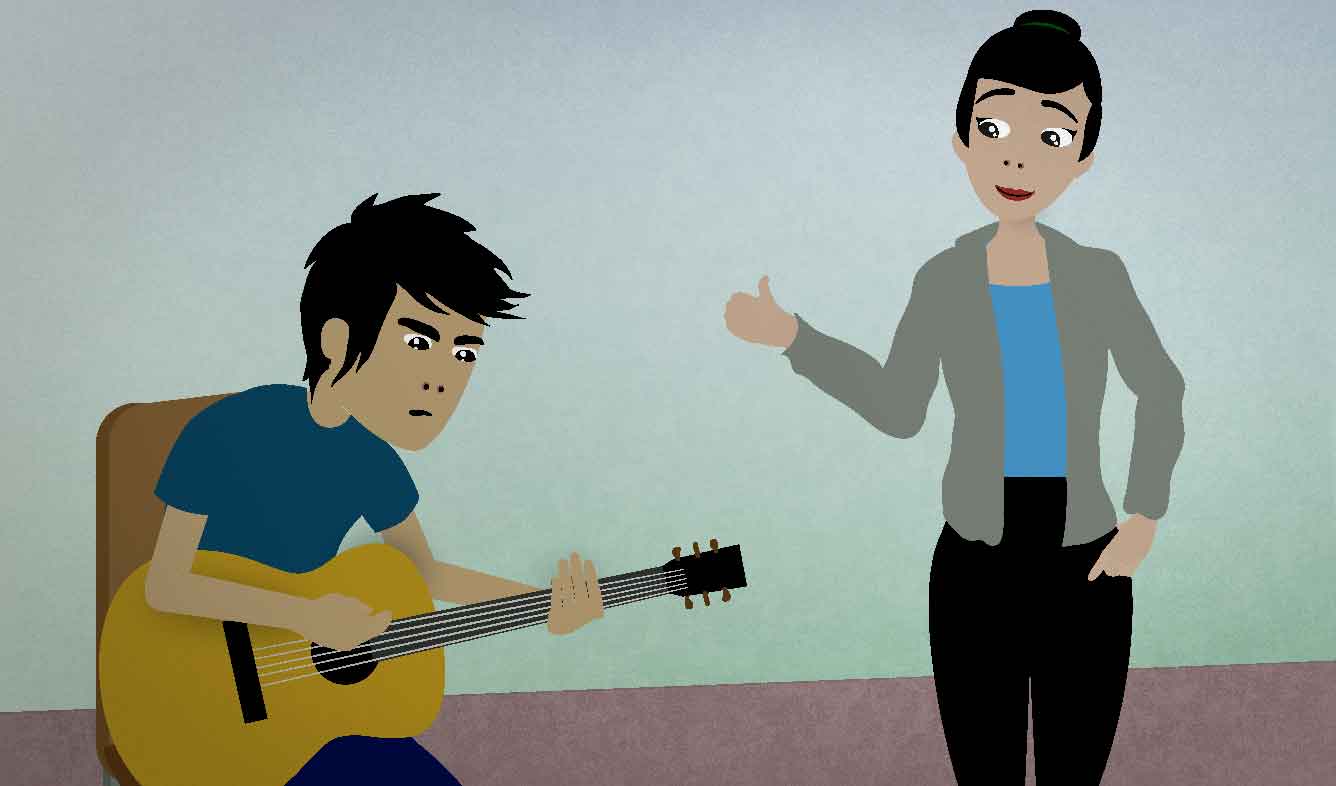“I can definitely tell you're getting better.”
Your friend is learning to play the guitar. He's frustrated because he doesn't think he's improving. But you do think he's improving, you say this to encourage him.
I can definitely tell you're getting better.
Want Video and Sound? Follow us on YouTube

(someone) can tell (clause)
When you "can tell" something, it means that you know it based on something you saw:
I can tell that you're lying to me.
Could you tell I wanted to leave?
You can leave "that" out in casual conversation, but in formal speaking or in writing you should definitely include it:
I can definitely tell that you're improving.
Use "___ can tell ___" to talk about things that someone noticed out on their own. Don't use if for things that someone heard from other people. In that situation use a phrase like "I heard ___":
I heard you and Desmond weren't getting along.
definitely (do something)
When you use "definitely", it means that you're sure. You use it to show how strongly you feel:
I definitely want to go.
"Definitely" is often used together with "can tell":
I can definitely tell that you've lost some weight.
You use "definitely" before a verb, but you can also use it before an adjective:
I'm definitely taller than him. He's like two inches shorter than me.
(be) getting better
When you're "getting better", it means you're improving:
I'm getting better, slowly but surely.
"Get better" is a more casual version of "improve".
"Get better" also means to recover after a sickness or injury, by the way.
